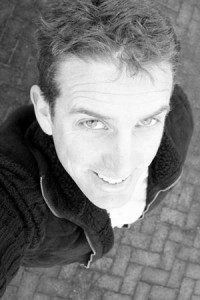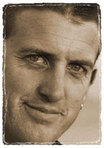Imagine a world …
 Ever wondered how fantasy authors put together an imagined world? Some books can transport you to worlds that seem so real you begin to wonder if the author was really there. What makes them so convincing, and how does an author begin to imagine a world that doesn't exist? I've been living in a fantasy world for the past decade and have learned some strange things about fantasy you probably wouldn't expect.
Ever wondered how fantasy authors put together an imagined world? Some books can transport you to worlds that seem so real you begin to wonder if the author was really there. What makes them so convincing, and how does an author begin to imagine a world that doesn't exist? I've been living in a fantasy world for the past decade and have learned some strange things about fantasy you probably wouldn't expect.
Magic is a big part of my writing. Don't get me wrong, I think science is hugely enlightening. Magic fills the spaces we haven't found ways to explain yet, and so in some ways magic is very high tech – it describes the talents we might yet discover but don't know how to access yet. If you're happy to accept the idea that we don't know everything yet, there's a gap for new possibilities and latent talents that could be developed into magic. Once you have magic in your world, it can be great fun! Magic continues to surprise me. It's very very tricky to work with, because once you allow people to have magical powers, you realise they would use magic to find simpler solutions to just about every challenge they face.
Take teleportation, for example. If you really had this power, you could steal anything, escape from any jail, avoid bullets, travel through the entire universe. There's not much that could compel you to be in a predicament. Most tension results from not being where you need to be, or not being able to escape. But of course with great power comes great responsibility. If you could do something to stop Hitler, you'd have to do something about it, or live with being an apathetic moron. Teleport in: pull the trigger: teleport out. Great, now you're a murderer. See how the world has suddenly become so very intense? So as soon as you introduce magic, your whole world and the way you would respond to it changes. This makes the story interesting in unexpected ways, and plays absolute havoc with any kind of plot you invent before you begin telling the story.
Imagine you decided you would have a knight rescue a fair princess trapped in a tower. Then you decide to give your princess the smallest whiff of magical power. By the time your knight in shining has put on all that armour, found his belligerent stallion and completed his quest against the unfair advantages of all his adversaries (who can use magic against him), the princess would have charmed the guard, escaped from her tower, charmed a trader to hide her in his wagon, charmed some men out of their money, charmed some more men to fight for her, swept down from the hills and captured her captors, and locked them in the tower. And she probably thinks the knight is a bit of a ninny. The original plot disappears in a puff of magic.
At which point you realise you have to throw out any preconceptions and submerge yourself in the imagined world, to be true to the story of a mage you must become a mage in that world, to understand how a mage would act you must imagine yourself there, in the flesh, or it's just not going to be real enough.
To keep track of all the various characters in my books is easy, because it becomes an act of seeing rather than inventing. I see the strangest characters in this hidden world, and I aim to record them as vividly as possible. This helps to differentiate them in my mind. I write in a slightly different style depending on whose eyes I am looking through, so my vocabulary, mindset and pacing will change automatically, but the more committed I am to the 'imagined world' the easier it becomes. What's most important is not to focus on the voice but to keep aiming to tell the story. Occasionally I write something from a narrator's point of view to foreshadow an event, create atmosphere, or evoke the rhythms of a myth, and that requires the perspective of an observer, but even then it's the voice of a character who lives in the imagined world … my alter ego, my double, the fantasy author.
We share a mind, but we live different lives. In the real world, I have a house, a car and a business, and probably spend too much time writing about fantasy writing. In the hidden world, I don't have a name, but I am very much alive. I see wonderful things. I work magic. I write.
So you could say that by writing fantasy I've developed a split personality. Greg Hamerton | fantasy author. There's a dividing line between fantasy and reality that helps to keep half of me sane, the half that needs a name. The other half is a wild-eyed creative. The ultimate achievement is to blur the line and be able to bring the magic back into this world.



